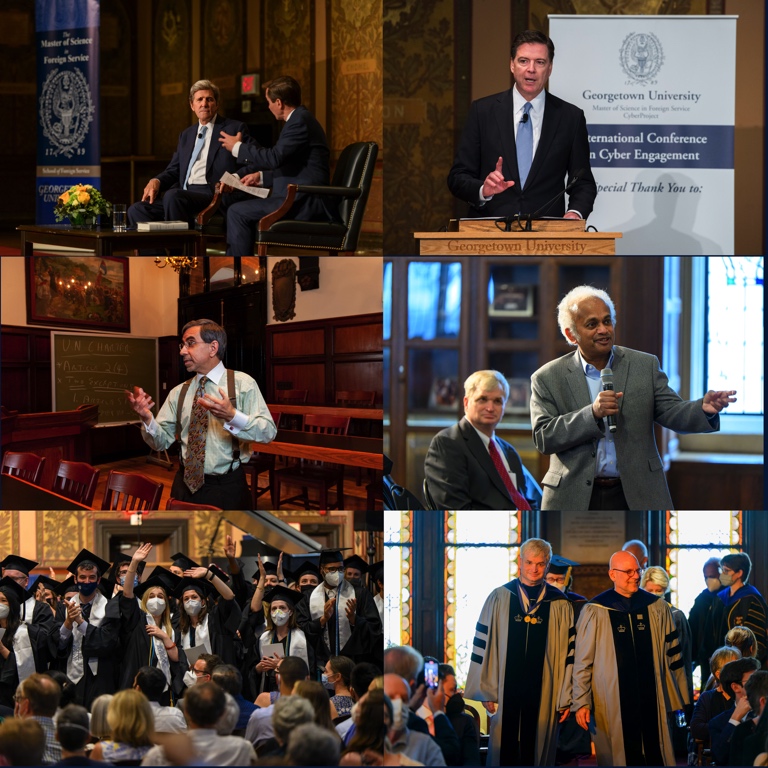MSFS in the New Millennium
Over the last two decades the program has continued to go from strength to strength under the successive leadership of Deans Robert Gallucci, Carol Lancastor, and Joel Hellman, and the MSFS Directors Carol Lancaster, Peter Dunkley, Jim Reardon-Anderson, John Kline, Tony Arend, Nancy McEldowny, and now George Shambaugh. The MSFS student body has continued to grow, and the curriculum has moved to adapt to new times.
During this period, the MSFS concentrations were reorganized to their current iterations of Global Politics and Society; Global Business, Finance, and Society; and International Development. The MSFS program also benefited from a significant expansion of joint appointments that brought faculty in the College departments of Economics, Government, and History into the School of Foreign Service and vise-versa. This expansion enabled the MSFS program to maintain its commitment to having all of its core courses taught by full time university faculty, while enabling its practitioner faculty to focus on their comparative advantage in bringing real-world experiences to the classroom through targeted elective courses. The MSFS program also benefited from other innovations, including: Dean Galucci’s addition of the Mortara Center with its research facilities honoring Madeline Albright and a renewed emphasis on bringing in practitioners; Director and Dean Lancaster’s creation of the complementary MA in Global Human Development; Director Arend’s expansion of innovative leadership training at Gettysburg; and Director McEldowney’s emphasis on promoting women in diplomatic affairs.

In 2020, under Director Shambaugh’s leadership, the MSFS program introduced the first graduate level concentration in Science, Technology, and International Affairs. With the help of the MSFS Advisory Board, he institutionalized ongoing efforts to address Diversity, Equity, and Inclusion (DEI), guaranteed funding for student internships, and expanded our local and international engagement. More importantly, he and Dean Hellman helped the program navigate the uncertainties of the Covid-19 pandemic to come out of it stronger than ever. Reflecting these innovations, MSFS welcomed the largest cohorts in their history in 2021 and 2022, with roughly 120 students in each class. As we celebrate 100 years of MSFS history this evening, we now look to how we can transform the MSFS program for the next generation of leaders.